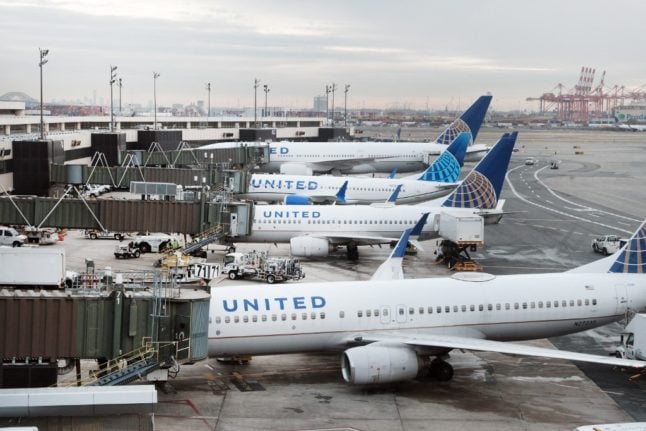Most people in the US will be hard pressed to find direct flights from US cities to Berlin.
The majority of flights first make a stop in the business hubs of Munich or Frankfurt, after which plane travellers need to fly an extra hour with a connecting flight to the capital’s Berlin-Brandenburg (BER) airport, or take a train.
However, more airlines – both established companies and discount providers – continue to add flights between BER and the US.
Washington, DC to Berlin
United Airlines’ first direct flight from Washington, DC to Berlin since 2021 took place at the end of May.
From now on, the connection will be offered regularly once a day, at 11:10 a.m. – for the time being, however, only in the airline’s summer flight schedule which stretches through the end of October.
The flights take around nine hours.
“Now Washingtonians don’t have to travel via Frankfurt or Munich to get to Berlin,” said U.S. Ambassador to Germany Amy Gutmann at BER on May 26th.
This isn’t the first time the route has existed, however: in 2001, Lufthansa flew from Tegel to Washington for a few months.
READ ALSO: What are the new international flight routes from Germany in 2023?
After the terrorist attacks of September 11th, however, the service was discontinued and not resumed.
Other connecting flights
At the end of May, Delta Airlines also added another connection to New York from BER: the airline flies daily to John F. Kennedy Airport (JFK) and back.
Berlin’s new mayor Kai Wegner (CDU) and Brandenburg’s minister president Dietmar Woidke (SPD) were both at BER last month to mark the first Delta take off flight.
Last year, the Norwegian low-cost airline Norse Atlantic also added connections between BER and Los Angeles, Florida and New York to its program.
Currently, though, Norse only flies to New York (JFK) from BER Airport. In partnership with German carrier Lufthansa, United also offers a limited number of flights from JFK to BER.
Those hoping to fly from the other big west coast travel hub of San Francisco will be hard-pressed to find a connecting flight though.
The former AirBerlin offered direct flights for a short time, but they were discontinued when the airline itself went out of business in 2017.



 Please whitelist us to continue reading.
Please whitelist us to continue reading.
Member comments